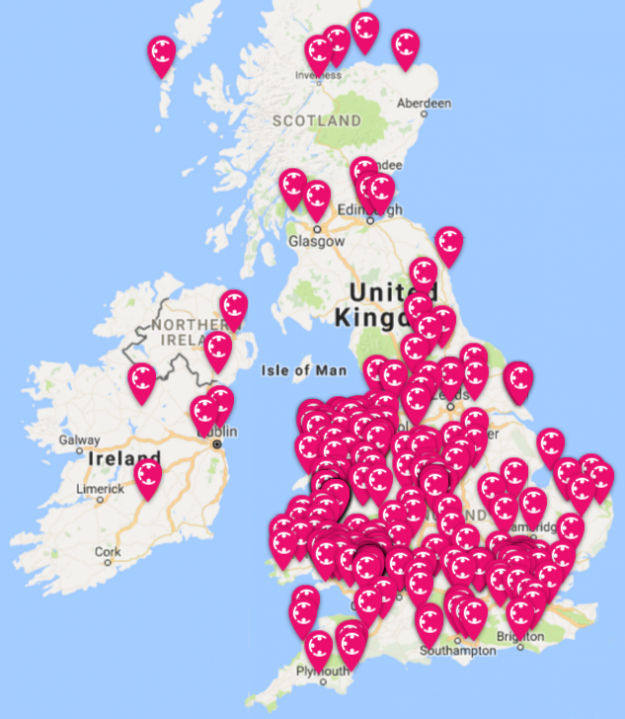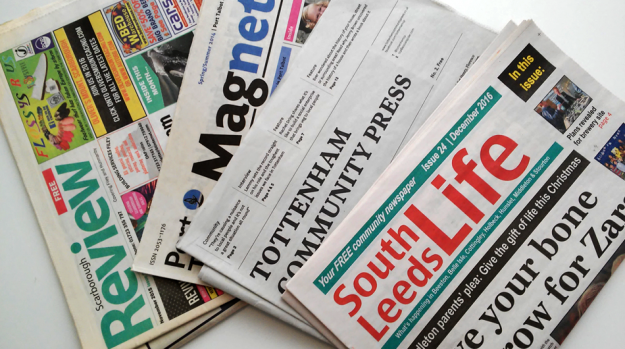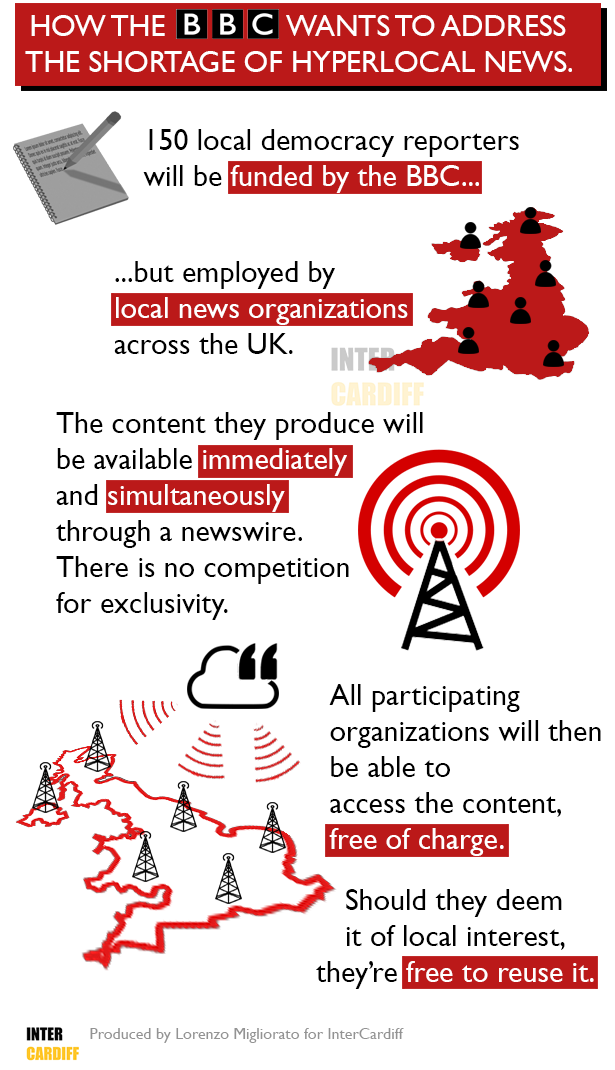Shortage of local news across the UK can lead to less scrutiny on public affairs. The BBC is launching a scheme to counter that risk.
The threshold for news is raising. Residents of, say, Aberffraw don’t need the Holyhead & Anglesey Mail anymore to know that there’s an event going on nearby. The organizers will tell us directly on Facebook. What we can’t expect Facebook to do, however, is go into Anglesey’s courts and councils and ask questions.
Which is where hyperlocal reporters comes in. The Centre for Community Journalism (C4CJ) says 198 local and regional papers have closed since 2005 years. At the same time, however, 400 new hyperlocal websites have emerged.

To empower hyperlocal journalism, the BBC will endow funds to 150 “Local Democracy Reporters”, who will be independently employed by local news organizations. In return, the organizations must demonstrate their ability to properly employ the reporters, and abide by the Editor’s Code of Practice.
“We recognize that there may be a coverage gap in terms of local councils and local authorities,” says Mark O’Callaghan, Head of News and Current Affairs at BBC Wales. “This is an effort to plug that gap. The initiative is to make people better informed about [affairs] that matter to them.”
Since the BBC is funded through the licence fee, he adds, everyone owns it. That’s why it has a duty to act as a patron to pluralism of information.
The content the reporters produce won’t stay exclusive to their employers: it will be available right away to all other participating organizations, no matter their geographical location.
The £8-million-a-year plan also serves to subsidise journalism efforts that are otherwise low-profit enterprises. According to IMPRESS, 10% of hyperlocal producers generate more than £500 in revenue, 25% raise barely enough to cover the costs, and 16% make more than they need to keep things running. In most case, it’s a volunteering effort.
Since sole traders and volunteers make up a huge portion of hyperlocal producers, the C4CJ reports that it pushed to make requirements for the fund more accomodating, and thus enlarge the basis of eligible news organizations. The central requirement is to employ at least one person “in a journalistic capacity”. Smaller publications will also be able to partner with larger groups, so as to make bidding for the fund more sustainable for them.
It might be that times that we find our town or village – or even a city like Cardiff – flat and devoid of news we care about. But journalism is often a silent effort, one that sometimes needs to defy the rules of supply and demand. Schemes like this are a good time to appreciate that championing.


